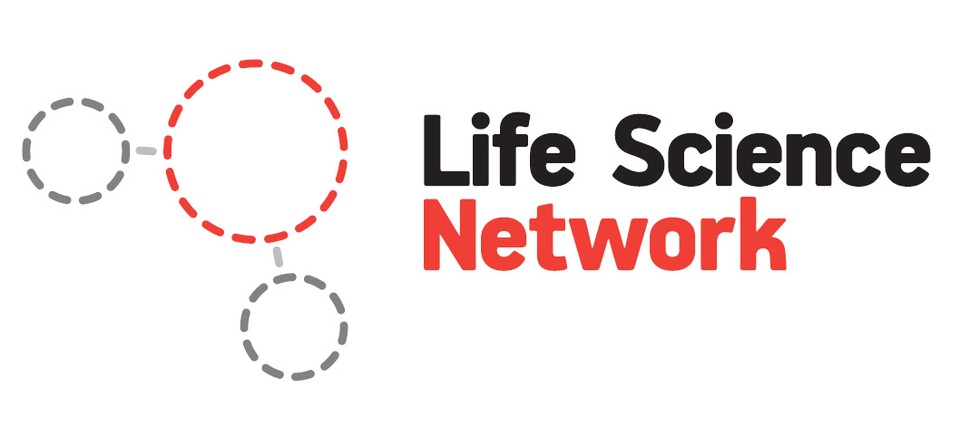Breast Cancer Research in Robert Clarke's LaboratorySee also Research in Leena Hilakivi-Clarke's Laboratory
Monastic ruins at Nendrum (Co. Down, Northern Ireland) showing the remains of the church and round tower. The abbey was reputedly founded by Saint Mochaoi in the 5th century AD. These are the pages of Dr. Robert Clarke's breast cancer research laboratory at Georgetown University. On this page you will find links to our ongoing research projects. More information on Dr. Clarke may be found at the Faculty web page, by clicking on the ResearcherID Profile or other links in the navigation pane to the right. Many of our publications can be accessed directly through links at the ResearchGate archive. Our laboratory web pages also include a listing of some of our current and prior laboratory members. Navigation links to other pages within our site are also provided in the panel to the right . News about Clarke labs (including media coverage)published on Neoplasia published on Cancer and Metastasis Reviews Leaders of the three Washington, DC medical schools authored a commentary in Capital Business section of the Washington Post (Jan/13/2013) that discussed the long-term harm that could result from cuts in medical research funding due to the budget crisis. The essay was written by Dr. Howard J. Federoff of Georgetown, Dr. Jeffrey S. Akman of George Washington, and Dr. Mark S. Johnson of Howard University. Link |
||
Dr. Robert Clarke, Ph.D., D.Sc., F.S. Biol., F.R.S. Chem., F.R.S. Med.Professor of Oncology and Physiology & Biophysics W401 Research Building Georgetown University School of Medicine 3970 Reservoir Rd NW Washington, DC 20057, U.S.A. Telephone: (202) 687-3755 Telefax: (202) 687-7505 Email: clarker@georgetown.edu Dr. Clarke is currently the Co-Director of the Breast Cancer Program at the Georgetown Lombardi Comprehensive Cancer Center |
||
Breast Cancer Research in Dr. Robert Clarke's Laboratoryfor a brief overview of breast cancer, see below Our primary research interests are focused on obtaining a better understanding of how breast cancer cells acquire resistance to systemic endocrine and cytotoxic therapies and the effects of hormones and growth factors on breast cancer cell proliferation, survival and cell death. We study cellular, molecular, and pharmacological resistance mechanisms in an integrated, multidisciplinary, and translational approach, applying many of the principles of systems biology. Our studies have a strong endocrinologic basis, e.g., our interests include the interactions among endocrine and cytotoxic therapies; a major emphasis is on antiestrogen resistance and hormone/aromatase inhibitor independence. You can learn about our work by visiting the pages on the right panel, which contain more detailed descriptions of the projects & publications. Since these studies are tightly integrated, some publications are necessarily listed in more than one section. Reprints of many of our publication can be downloaded from the self archive at We have been fortunate that our work has been consistently funded by the National Institutes of Health, Department of Defense, Susan G. Komen Foundation, Prevent Cancer Foundation, and American Institute for Cancer Research. We remain grateful for this support and for those breast cancer advocates and survivors, past and present, who have contributed their time and materials in direct support of our research. We also thank those women and men who have given of their precious time to work in many other venues to raise breast cancer awareness and increase research funding, and to work together to help achieve the goal of eradicating breast cancer as quickly and effectively as possible. We apply a wide range of state-of-the-art cellular, molecular, and bioengineering /bioinformatics approaches to both experimental models (several of which we derived specifically for these studies) and to specimens from breast cancer patients. Laboratory members also work closely with a group of breast cancer advocates at the Lombardi Comprehensive Cancer Center at Georgetown University. Descriptions of our work can also be found in the websites for two of our NIH funded centers: In Silico Center of Research Excellence at Georgetown (Drs. Clarke and Madhavan; co-principal investigators) funded through the NCIICBP, and the Center for Cancer Systems Biology at Georgetown University (Dr. Clarke; principal investigator) funded by the NCI Integrative Cancer Biology Program. Dr. Clarke's Publications Short Biography |
||
Breast Cancer: An IntroductionIn the next 12 months, American Cancer Society estimates there will be over 62,000 newly diagnosed cases of in situ breast cancer and approximately 220,000 newly diagnosed cases of invasive breast cancer in the United States. In situ cancers arise either in the ducts (ductal carcinoma in situ; DCIS) or lobules of the breast (lobular carcinoma in situ; LCIS) and have not invaded local tissues. Invasive breast cancers have grown into the local tissues of the breast. Over 40,000 women will die of breast cancer during this period, the equivalent of one breast cancer death every 13 minutes. Lifetime risk of developing breast cancer is modified by several factors related to development (e.g., weight at birth, age at menarche), reproductive life (e.g., parity, breast feeding, age at menopause), lifestyle (e.g., obesity, alcohol consumption), inheritance (e.g., mutant BRCA1). The molecular events that drive breast cancer progression towards more aggressive forms are largely unknown in both sporadic and inherited breast cancers. Randomized clinical trials and large meta-analyses show that breast cancer patients derive a statistically significant survival benefit from endocrine therapy and cytotoxic chemotherapy, tamoxifen (antiestrogen), letrozole (aromatase inhibitor), doxorubicin (anthracycline) and paclitaxel (taxane) being among the most effective single agents. The overall survival benefit gained from current systemic therapies largely reflects the abilities of cytotoxic and endocrine agents to modify breast cancer cell survival such that cells are driven down an irreversible cell death pathway. Despite the benefits of therapy, advanced breast cancer largely remains an incurable disease for most women, and new treatment regimens and schedules have led to only incremental decreases in breast cancer related mortality. A better understanding of the factors that regulate breast cancer cell survival/death is central to improving breast cancer outcomes in women. While multiple molecular subtypes of breast cancer have been reported in recent years, only three molecular markers remain central to the direction of specific therapies: estrogen receptor alpha (ER; HUGO gene symbol = ESR1); progesterone receptor (HUGO gene symbol = PGR); ERBB2 (cErbB2, HER2/neu; HUGO gene symbol = ERBB2) Breast tumors that express ER and/or PGR represent ~70% of newly diagnosed invasive breast cancers and comprise the first molecular subtype. More women die from this type of breast cancer than any other molecular subtypes. These breast cancers are initially considered hormone-dependent and are often treated with an antiestrogen (binds ER and inhibit its function) or an aromatase inhibitor (blocks estrogen production). Antiestrogens such as tamoxifen (Nolvadex®) or raloxifene (Evista®) can be given to either premenopausal or postmenopausal patients, whereas Fulvestrant® (Faslodex; ICI182,780) is given primarily to postmenopausal women. The antiestrogens tamoxifen and raloxifene are often called selective estrogen receptor modulators (SERMs) because they can act as both an estrogen and an antiestrogen depending on the tissue (and species). Fulvestrant is a selective estrogen receptor down-regulator (SERD) because it causes ER protein to be degraded. Aromatase inhibitors like letrozole (Femara®) are usually given only to postmenopausal patients. Response rates to these endocrine therapies vary but data from the Early Breast Cancer Trialists’ Cooperative Group show that patients with ER+ breast cancer who received an endocrine therapy experience a significantly reduced risk of breast cancer recurrence and death. ~25% of breast cancers overexpress ERBB2, a member of the epidermal growth factor receptor (EGFR) gene family. Tumors that overexpress ERBB2 represent the second molecular subtype. These breast cancers are usually candidates for treatment with the antibody therapy trastuzumab (Herceptin®), which binds to the ERBB2 protein and blocks its ability to signal breast cancer cells to grow. This signaling is driven by the ERBB2 protein's kinase domain (a protein kinase is an enzyme that can add a phosphate group to another protein). Several drugs have emerged that act by blocking this domain in ERBB2 and in other EGFR family members, e.g., the 4-anilinoquinazoline lapatinib (Tykerb®; inhibits both the ERBB2 and EGFR tyrosine kinase activities) is FDA approved for breast cancer patients already using the antimetabolite capecitabine (Xeloda®). Other agents in this chemical family of kinase inhibitors include gefitinib (Iressa®; inhibits EGFR) and erlotinib (Tarceva®; inhibits EGFR), which also appear to have activity in other cancers. Some tumors that overexpress ERBB2 also express ER and/or PGR. The third molecular subtype is defined by its lack of expression of ER, PGR, and ERBB2 and represents ~15% of breast cancers. This subtype is often called triple negative breast cancer or TNBC. Currently, there is no established molecular targeted therapy for this breast cancer subtype. The primary treatment for these breast cancers remains a combination cytotoxic chemotherapy regimen. All breast cancer subtypes are often also considered for systemic treatment with a combination cytotoxic chemotherapy regimen. Data from the Early Breast Cancer Trialists' Cooperative Group show that all breast cancer patients experience a reduced risk of breast cancer recurrence and death with cytotoxic chemotherapy. New tools to better identify which cancers require more aggressive chemotherapy, compared with those that do not, continue to emerge. These tools are often molecular classifiers that attempt to identify prognosis (often risk of recurrence/metastasis) by measuring the expression values of a panel of genes, e.g., Mammaprint (measures 70 genes) and OncotypeDX (measures 21 genes). The goal of finding effective and accurate prognostic tools to better inform treatment decisions remains an area of active research within the breast cancer research community. Despite the continued development of molecular targeted therapies, improved cytotoxic drug regimens, and new prognostic tools, many tumors that would be expected to respond to specific therapies do not (de novo resistance), and others that initially respond later recur (acquired resistance). Unfortunately, the development of drug resistant disease remains a major limitation to our ability to cure many breast cancer patients. |
||
To learn more about breast cancer, check the information available at the National Cancer Institute, the American Cancer Society, and/or the Susan G. Komen Foundation. To learn more about cancer prevention, try the Prevent Cancer Foundation. To read about nutrition and cancer consider the American Institute for Cancer Research. To learn about clinical trials and those open here at Georgetown, visit our clinical trials website. We hope you find the information on these pages to be interesting and informative. Questions or comments should be addressed to the webmaster. |
||








